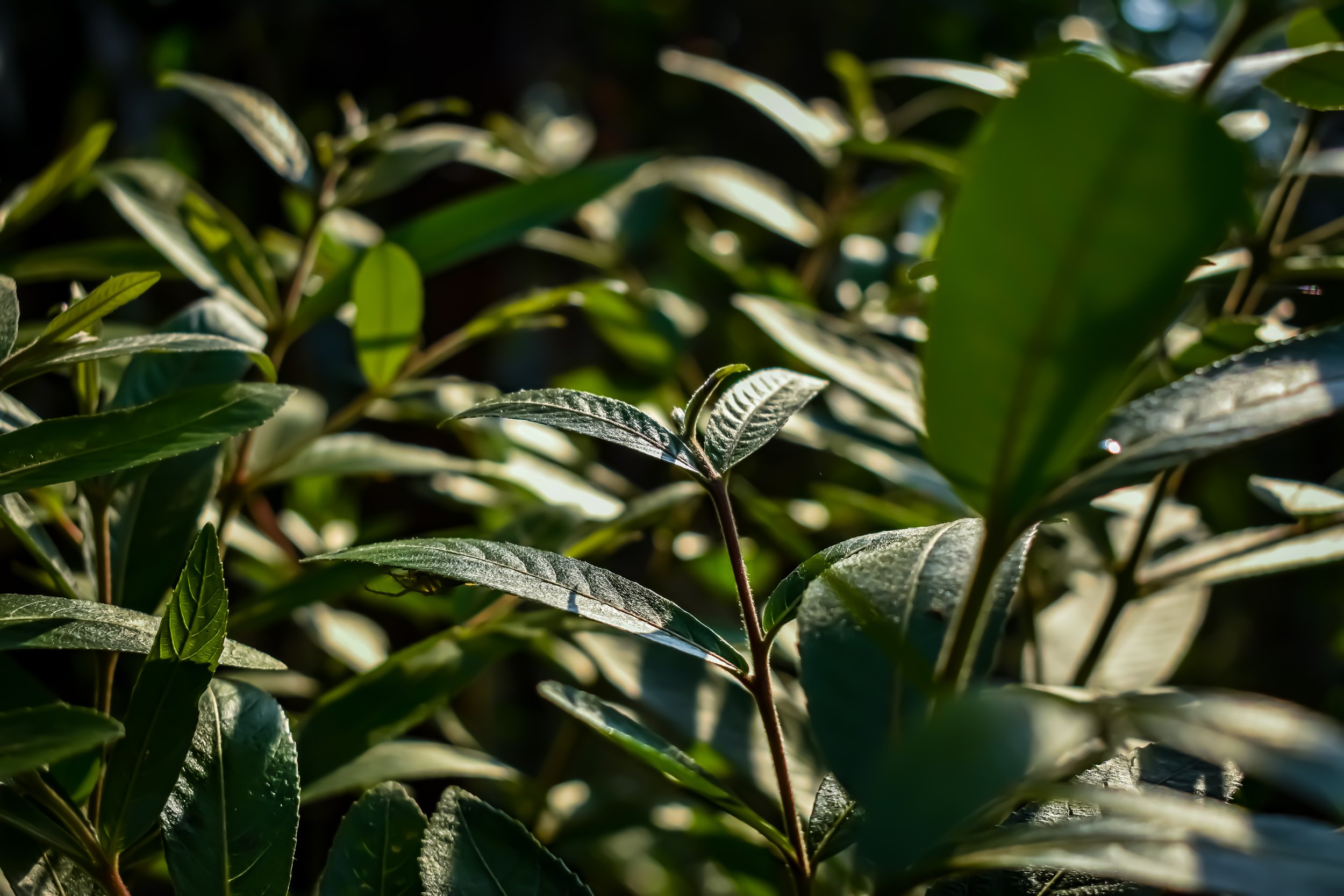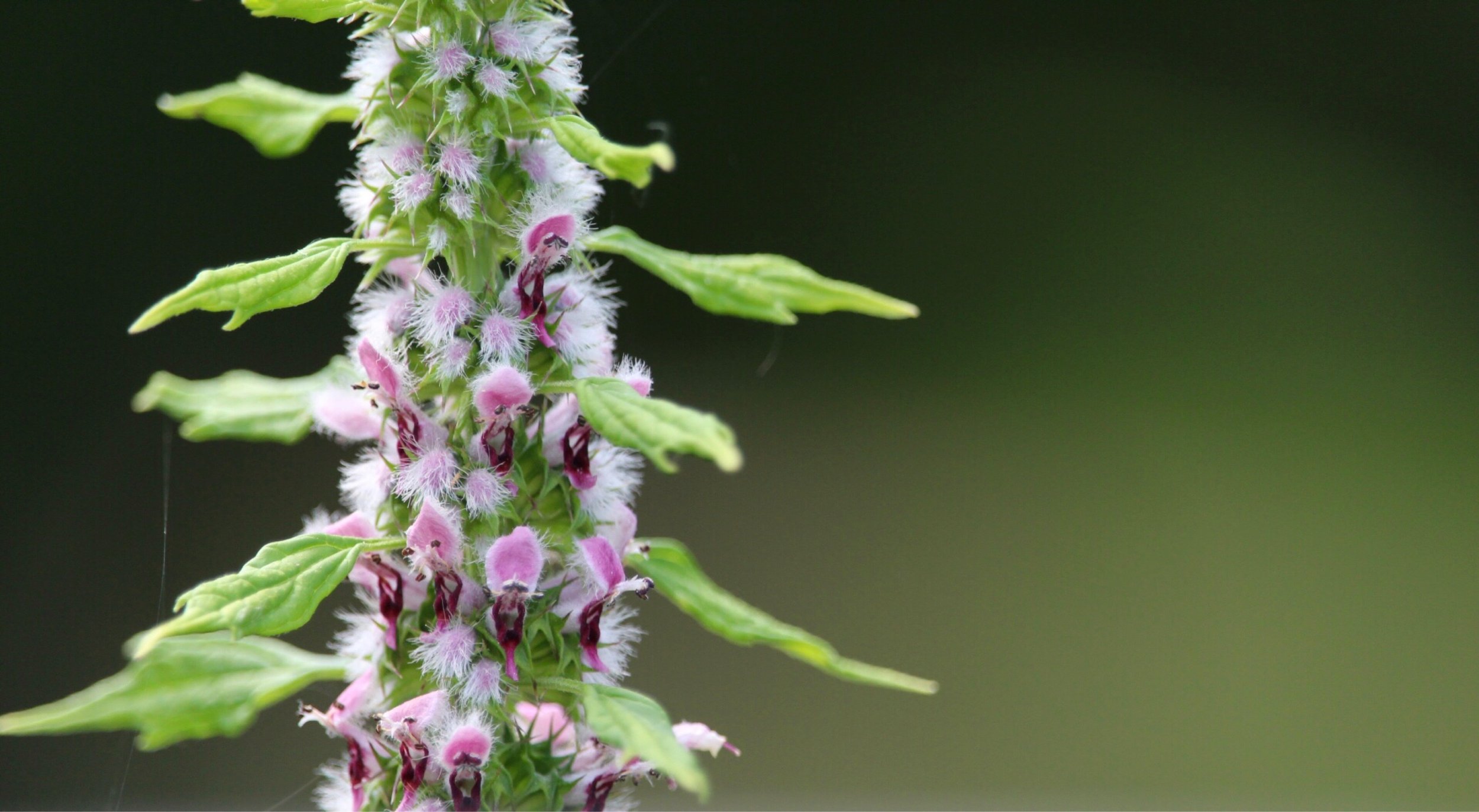6 Herbs for Cardiovascular Health
Heart Health
Maintain a Healthy Heart: overall Cardiotonic
cardioprotective, treat hypertension and high cholesterol
Arjuna or Arjun Bark, Terminalia arjuna
The Arjun tree is native to India, and Asia more broadly, and it grows to 60-80 feet in height. It prefers to live next to waterways and loves humidity! The bark has been used traditionally to treat heart conditions and for good reason too. To use the bark, harvest it from the stems of the tree and grind or cut it into small pieces. Then just dry and use! It works best in a decoction or and 50/50 alcohol extraction.
Arjuna has been shown to increase coronary flow which slows the heart rate. This in turn lowers blood pressure. The alcohol extract in particular has shown very promising results. This effect is thought to be due to the tannin-related compounds within it. One of these, arjunolic acid, in particular, has been shown to be cardioprotective by boosting endogenous antioxidants. The alcohol extracts have also been shown to reduce cholesterol and triglyceride levels. The bark of the Arjun tree shows promise for those looking for cardiotonic home remedies. It has been determined to be safe for daily use, especially in a decoction.
Garlic, Allium Sativum
Another great cardiotonic herb is garlic! This iconic bulb from the Liliaceae family has been used by numerous cultures for its favor and medicinal properties. Garlic originated from Middle Asia and its use and cultivation has spread worldwide since then. It became widely popular in China where it was known as a cardiotonic. Before that it was used by Sumerians and it is even thought that this society introduced it to China where it then spread throughout Asia. Thousands of years later its use has spread worldwide, and for good reason to!
Its bioactivity is due to its sulfur containing compounds like allin. Allin is metabolized to allicin which is even more bioactive. This is even metabolized further to compounds ajoene, allyl sulfides and vinyldithines. All of these compounds make garlic antimicrobial, antioxidant, antihyperlipidemic, and hypotensive, and absolutely amazing for heart health! In other words garlic is able to naturally lower your blood pressure and lower cholesterol levels. It is able to lower blood pressure because it has a vasodilating effect due to the allicin.
Manage Nervous or Irregular Heart Beat
heart rate control, lowering a fast heart rate
Motherwort, Leonurus cardiaca
This perennial herb is native to Asia and Southeast Europe. Traditionally motherwort was given to mothers during childbirth to reduce anxiety and ease the birthing process. Its amazing for women in general as it also treats some uterine and menopausal conditions. Makes sense when you look at its common name! Today though let’s look at its effects on our hearts…
Motherwort is able to slow the heart rate and reduce anxiety because it is a nervine tonic. It soothes overactive nerves. It contains furanic diterpenes like labdanes, alkaloids like stachydrine, and sterols, iridoids, flavonoids, ursolic acid, and minerals. These all make motherwort antianginal, antiarrhythmic agent (regulates heart rate), and cardioprotective. In particular, motherwort contains ursolic acid which is very cardioprotective. Ursolic acid acts like an antioxidant which also gives it the ability to prevent plaque buildup in the arteries and promotes a healthy heart!
Use motherwort in tea or an alcohol extract if you prefer. This herb is not great for daily use so as soon as your heart rate regulates stop use. Limit use to less than one month and do not take it if you are pregnant or breastfeeding.
Vascular Health
Maintain Healthy Cholesterol Levels
anti-hyperlipidemic
Fenugreek, Trigonella foenum-graceum
Fenugreek is an angiosperm in the Legoumonosae family, native to the Mediterranean and North Africa. The seeds and other aerial parts are commonly used in a tincture or tea for a variety of alignments. In particular fenugreek is an amazing natural remedy for maintaining healthy cholesterol levels. The seeds contain compounds such as steroidal saponins like diosgenin and yemogenin, alkaloids like trigonelline and gentanin, and mucilage. Trigonelline is the compound that is able to decrease blood cholesterol levels. In the body it increases the secretion of bile acids which convert cholesterol to bile salts. These, in turn, are much easier for the body to dispose of!
Manage Hypertension or High Blood Pressure
anti-inflammatory, anti-hyperlipidemic, treat hypertension
Ginseng, Panax ginseng (Korean), Panax quinquefolium (American) or Panax notoginseng (Chinese)
A traditional Chinese medicine, Ginseng is used to treat hypertension of the arteries. Hypertension or high blood pressure can be caused by a number of different things, ranging from diet to stress. Ginseng acts as a vasorelaxant, or something that relaxes our arteries. This gently lowers blood pressure. It is also able to regulate the levels of lipids in the blood. In other words it can help your body manage your cholesterol levels! This also lowers your blood pressure.
Ginseng is native to Asia and North America and there are actually two different types of ginseng, white and red. Red is created by steam treating white ginseng. This treatment makes the ginseng more pharmacologically active in the body! Ginseng works well in tinctures, but is not to be used daily. Take it when you need it, but once your blood pressure lowers stop taking it. If you are using red ginseng you don’t need to take as much as white ginseng so start with 5 drops to test the waters. If your body accepts it, great! Continue to monitor your body and once you feel well, cease use.
Prevent Plaque Buildup (Atherosclerosis) and Treat Coronary Heart Disease
antioxidant, anti-inflammatory, anti-atherosclerosis
Sage, Salvia officinalis (Common) and Salvia miltiorrhiza (Red Sage)
Sage is a well known culinary and medicinal herb. Used as an aromatic when cooking, its aromatic compounds are partially responsible for its medicinal value. In particular the essential oil of sage contains 1,8-cineole, camphor, and alpha and beta-thujone. Its essential oils are carmative (treats cough), antispasmodic, antiseptic, and astringent in nature. Rather than ingest the essential oil try sage in a tea, the hot water releases these compounds. Just make sure to let the tea sit with a cover while it cools to preserve the essential oil in the brew. The tea has been used traditionally for digestive and circulation issues, bronchitis, cough, and asthma, and angina and inflammation. The last of these are conditions of the cardiovascular system. The compounds carnosic acid, rosmarinic acid and ursolic acid are antioxidants that help to treat coronary heart disease. These three compounds are readily extracted into alcohol. So if you are looking for a preventative herb for heart health try out sage!
References
Dwivedi, S., & Chopra, D. (2014). Revisiting Terminalia arjuna - An Ancient Cardiovascular Drug. Journal of traditional and complementary medicine, 4(4), 224–231. https://doi.org/10.4103/2225-4110.139103
Petrovska, B. B., & Cekovska, S. (2010). Extracts from the history and medical properties of garlic. Pharmacognosy reviews, 4(7), 106–110. https://doi.org/10.4103/0973-7847.65321
Tiwari, Raj. (2011). Garlic as food, spice and Medicine: as prospective. Journal of Pharmacy Research. 4. 1857-1860. https://www.researchgate.net/publication/281521870_Garlic_as_food_spice_and_Medicine_as_prospective
Fierascu, R. C., Fierascu, I., Ortan, A., Fierascu, I. C., Anuta, V., Velescu, B. S., Pituru, S. M., & Dinu-Pirvu, C. E. (2019). Leonurus cardiaca L. as a Source of Bioactive Compounds: An Update of the European Medicines Agency Assessment Report (2010). BioMed research international, 2019, 4303215. https://doi.org/10.1155/2019/4303215
Sermukhamedova, O. V., Sakipova, Z. B., Ternynko, I. I., & Gemedzhieva, N. G. (2017). Representatives of motherwort genus (leonurus spp.): aspects of pharmacognostic features and relevance of new species application. Acta poloniae pharmaceutica, 74(1), 31–40. https://pubmed.ncbi.nlm.nih.gov/29474759/
Erdmann, J., Kujaciński, M., & Wiciński, M. (2021). Beneficial Effects of Ursolic Acid and Its Derivatives-Focus on Potential Biochemical Mechanisms in Cardiovascular Conditions. Nutrients, 13(11), 3900. https://doi.org/10.3390/nu13113900
Bahmani M, Shirzad H, Mirhosseini M, Mesripour A, Rafieian-Kopaei M. (2016) A Review on Ethnobotanical and Therapeutic Uses of Fenugreek (Trigonella foenum-graceum L). J Evid Based Complementary Altern Med. 21(1):53-62. doi:10.1177/2156587215583405. Epub 2015 Apr 27. PMID: 25922446.
Shaito, A., Thuan, D. T. B., Phu, H. T., Nguyen, T. H. D., Hasan, H., Halabi, S., Abdelhady, S., Nasrallah, G. K., Eid, A. H., & Pintus, G. (2020). Herbal Medicine for Cardiovascular Diseases: Efficacy, Mechanisms, and Safety. Frontiers in pharmacology, 11, 422. https://doi.org/10.3389/fphar.2020.00422
Hamidpour, M., Hamidpour, R., Hamidpour, S., & Shahlari, M. (2014). Chemistry, Pharmacology, and Medicinal Property of Sage (Salvia) to Prevent and Cure Illnesses such as Obesity, Diabetes, Depression, Dementia, Lupus, Autism, Heart Disease, and Cancer. Journal of traditional and complementary medicine, 4(2), 82–88. https://doi.org/10.4103/2225-4110.130373






